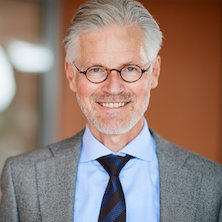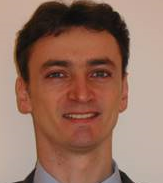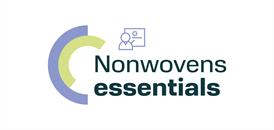Nonwovens essentials - What to expect?
The face-to-face course in Brussels offers:
- a unique overview of all aspects of nonwovens, technologies, raw materials and applications
- a great opportunity to see all manufacturing technologies (including demonstrations where possible)
- a guided visit of the CETI facilities on the 3rd day
- a right balance between theory and practical exercises
- the presence of a large range of samples, raw materials, nonwovens and finished products adds to the interactive nature of the course.
This course is designed for you if you are asking yourself questions such as:
"What is the difference between spunlaid and spunlace?"
"Is drylaid the same as carding?"
"Where can I get a simple and clear explanation of the various technologies?"
"Which materials can be used to manufacture sustainable nonwovens?"
then you should consider taking this 3-day course.
The online course offers:
- 4 modules of 3 hours each on 4 consecutive mornings from 09.30 to 12.30 CET
- a unique overview of all aspects of nonwovens, technologies, raw materials and applications
- a right balance between theory and practical exercises
- a set of samples that will be sent directly to your home
- the training is organised on Swapcard, a platform where you'll be able to watch the videos, access live Q&As sessions and engage with other participants.
- a replay of the course will be available for registered participants during one week
- participants to the online training course have the opportunity to see all manufacturing technologies by visiting CETI’s facilities at a later date
The sessions of both courses are designed to strengthen the understanding and the technical knowledge of any professional of the nonwovens industry involved with producers, suppliers, converters and retailers.
Nonwovens essentials - Practical info & Registration
| Online Training | Training in Brussels | In-House Training |
| REGISTER | REGISTER | |
€1490 excl.VAT - EDANA Member €1850 excl.VAT - non-Member | €1890 excl.VAT - EDANA Member €2345 excl.VAT - non-Member | on demand |
| The fees include comprehensive delegate notes, samples, Q&A sessions, and an optional visit of CETI's pilot lines in Tourcoing | The fees includes comprehensive delegate notes, samples, visit of CETI's pilot lines in Tourcoing, lunches, one evening meal and coffees | The fee includes comprehensive delegate notes, samples and a tailored approach |
| The course takes place on a digital platform with pre-recorded videos of the modules and live Q&A interactions with the trainers and the other participants | The course takes place at EDANA, 85 Avenue des Nerviens, 1040 Brussels, Belgium if a minimum of 10 participants is reached . If these conditions are not met, the course will take place online. | The course can take place at EDANA, at your company or at a location of your choice. |
Nonwovens essentials - Training team

Marines Lagemaat is the Scientific and Technical Affairs Director at EDANA, the international Association representing the nonwoven and related industries, a position he has held since September 2014.
Based in Brussels, Marines is responsible for managing the internal and external activities related to scientific and technical affairs in order to support the nonwoven industry, in all its applications: personal and household hygiene, medical protection, filtration, automotive, and construction. In this role he’s involved in the development and implementation of standards and their related test methods that serve as a reference for the industry and for fair trade. In addition, Marines manages various training and education programmes designed to provide technical and application-oriented support. Marines is of Dutch nationality.

Olivier Guichon holds a Master’s degree in Material Sciences and started his career as R&D Project Manager & Process Engineer at Rieter / Andritz Perfojet in Grenoble, France. Amongst his responsibilities were the management of the Spunlaid & Meltblown Technical Center, and the start-up and optimisation of industrial lines worldwide. Olivier also was R&D Project Manager for hydroentanglement.
After 10 years, Olivier became Consultant Nonwoven Process Expert at RH Solutions, now supervising the start-up of new spunbond and spunlace lines and bringing his support for production in US, Europe, Asia. Olivier also supervises R&D projects of new applications in nonwovens and brings his process expertise on various process issues on spunbond and spunlace lines. On top of his technical activities, he is offering training and sales support to the nonwovens industry.
Nonwovens essentials - Other information
Who should attend
Both technical and marketing persons will benefit from attending this course. As they are likely to be involved with producers, suppliers, converters and retailers within the industry.
Language
The course language is English. The trainer will speak clearly and make extensive use of visual aids, videos and samples. Active participation is encouraged from all delegates.
Certificate
A certificate of participation is available on request.
Venue
The course will take place at EDANA, 85 Avenue Nerviens, 1040 Brussels, Belgium, if a minimum of 10 participants is reached and if the sanitary situation allows.
Accommodation
EDANA has reserved a number of single rooms at the NH Collection Brussels Centre at a special rate of about €200 per night, including breakfast. In order to receive this special rate, an hotel booking form will be provided to you once we have received your registration for the course.
Nonwovens essentials - Participants' feedback
What did you like about the training?
"The wide Variety of nonwovens and the practical part, the CETI site tour"
"To have now a better overview and understanding about nonwovens"
"As new to the NW business I now have a clear view on the different production processes. Is real added value to my job as I'm in contact with non-woven suppliers"
"Understanding for the different nonwovens techniques and when they can be interesting to use"
"Understanding better my business. Increasing my knowledge, though realizing that still there is much more to learn"
"To understand the important techniques of web formation/consolidation/finish for the own applications, supplier discussions, improvements or performance relationship"
"It gave me a lot of knowledge about nonwovens. And the possibility to do an additional course in the future"
"The whole production processes. My expectation was to have an overview about the method to make NW and that was presented in a good manner"
"My key learning of the training was to get a closer look in the manufacturing process of different Nonwovens. For me, as a rookie, the systematical overview was necessary"
"Going to CETI and looking at the machines and getting a better understanding of the process"
"To be able to identify competitor’s material"
"Nonwoven materials are very key raw materials for our products. In order to conduct different projects with the suppliers it would be quite helpful to learn the key points of the techniques and used areas"
"Samples and handouts to look it after if in the office want to have someone more information"
"Production methods and it's advantages/disadvantages"
"More detail knowledge in future conversations with customers"
"Better knowledge about nonwovens field and opportunities out of our business. Networking to be aware about the trend and future tendencies of our own field "
"The wetlaid, airlaid, production and their bonding techniques"
"To strengthen my knowledge, as I have no background in nonwovens or textile. I have learned a lot"
"Knowledge gain beyond my area of responsibility and the networking"
"Getting an overview about nonwovens to talk to customers on same level"
"Being more or less able to distinguish between all types of nonwovens"
"Broad overview of the industry and relevant factors, know where to look at for information"
"Good network, interesting handouts and takeaways and global understanding of nonwovens world and applications"

